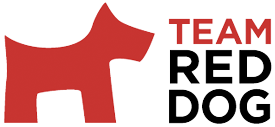
How Objective Wording Could Mean More Applicants
People want to join organizations where they feel they will belong. That impression happens early – with a quick scan of your job post and the decision whether to apply or move on. Word choice in job descriptions matters. The way you communicate could be limiting your pool of qualified candidates.
Getting more applicants could be as simple as examining your job descriptions for gendered wording. ZipRecruiter found that job listings with gender-neutral wording get 42% more responses. Yet, as many as 70% of role descriptions can contain masculine wording. That’s a lot of companies losing out on a wider talent pool.
What does gendered wording look like?
- Masculine: A dominant technology firm in the Seattle area is seeking a Front-End Developer confident in navigating challenging situations. You’re an independent thinker who boasts superior coding knowledge and an analytical approach.
- Neutral: A firm at the forefront of technology is seeking a Front-End Developer with top-notch coding skills who can creatively and collaboratively problem solve. Your proactive approach combined with your analytical thinking will be key building this exciting application.
- Feminine: A growing technology firm committed to quality is seeking a Front-End Developer with dependable coding abilities and a collaborative attitude. You have a keen understanding of application development and are excited to support the creation of exciting projects.
Why does it matter?
Masculine wording in job descriptions actually reduces qualified women’s interest in the job and makes the job less appealing. Words like ‘strong,’ ‘outspoken,’ and ‘competitive’ can unconsciously signal to women that the job is not right for them. And it’s not because women don’t have the skills necessary for the job nor is it because the gendered wording affects their appraisal on whether they can do the job. It’s because they feel they won’t belong in the company. So, they self-select out.
Further, Textio has found evidence that the language in job posts predicts the gender of your hire. If your role description has gendered language, you’re more likely to hire that gender.
On the flip side, masculine wording in jobs has a negligible effect on men applying to jobs. Men are only slightly more likely to find masculinely worded jobs more appealing. This trade-off doesn’t seem worth it when qualified women are less likely to apply.
For the majority of people, the effect of gendered wording is unconscious. In a study on gendered language, no participants picked up on the gendered language when asked what aspects affected their opinion on the job. People pick up on gendered pronouns and explicit references to gender, but gendered wording is subtle. The advantages of objective wording in job descriptions seems clear: more qualified applicants and a better chance of diverse hiring.
So how can I create objective job descriptions?
- Have an idea of which words have masculine or feminine connotations and use them sparingly.
- Balance masculine and feminine words to convey you value a diverse set of skills.
- Focus on objective job requirements when writing job descriptions.
- Limit your use of superlatives.
- Paste your job description into this decoder. It will tell you whether your ad is gender-neutral or not and lists which words are masculine and feminine.
Ideally, job descriptions should reflect your company culture. Make them as welcoming as possible!
Get more tips on further expanding your pool of applicants with these strategies on expanding your talent pipeline.
Struggling to get a qualified pipeline of applicants to your roles? With over 15 years’ experience offering high-touch staffing solutions, Team Red Dog can help.
